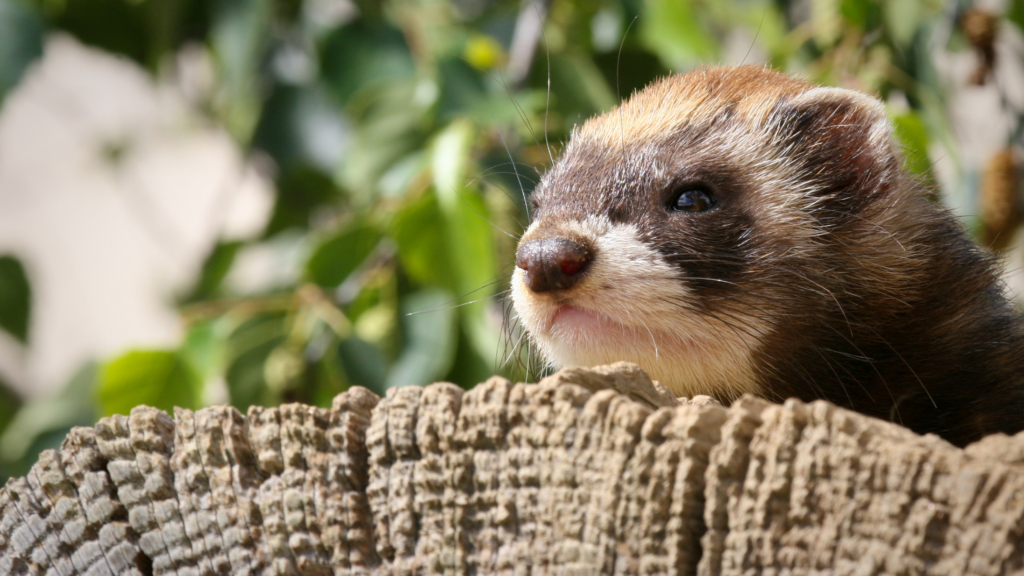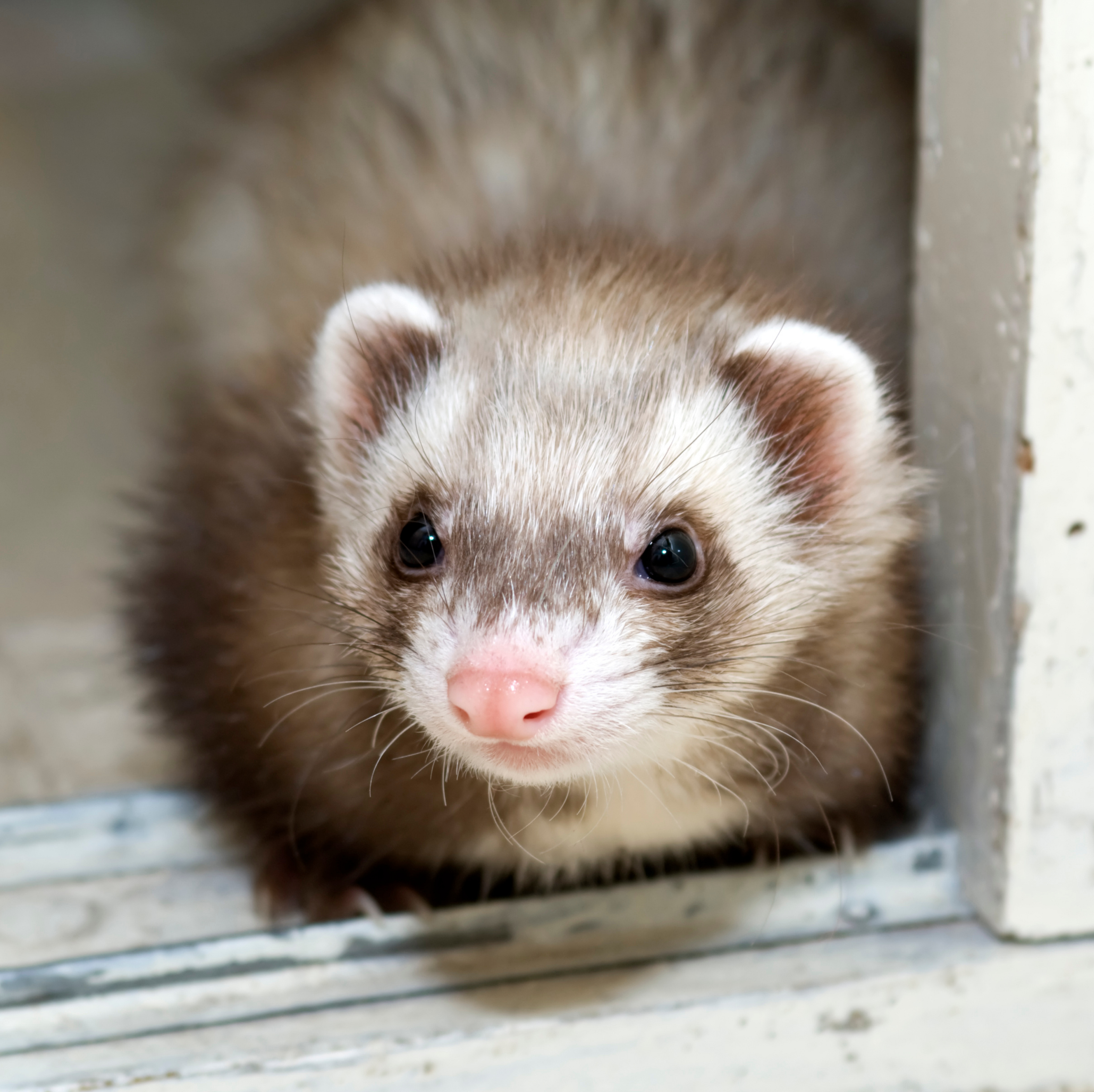How to Stop Your Ferret from Biting
Introduction
Ferrets are adorable, playful, and intelligent pets, but they can sometimes develop a biting habit. If your ferret is nipping or biting frequently, you’re not alone—many ferret owners face this challenge. Biting can be a sign of excitement, fear, or even an attempt to communicate. The good news? You can train your ferret to stop biting with patience and the right techniques.
In this guide, we’ll explore why ferrets bite, how to gently correct their behavior, and the best methods to prevent future biting. Whether you’re a new ferret owner or have an older ferret with bad habits, these tips will help you create a stronger, bite-free bond with your pet.
Why Do Ferrets Bite and How to Stop Ferret Biting?
Before stopping the behavior, it’s important to understand why ferrets bite in the first place. Here are the most common reasons:
1. Playfulness and Excitement Can Lead to Ferret Biting
Ferrets are naturally playful animals. Just like kittens, they engage in rough play, which often includes nipping. Your ferret may see biting as part of a fun game.
2. Fear or Anxiety May Cause Ferret Biting
If your ferret is new to your home or has had negative past experiences, they may bite out of fear. Quick movements, loud noises, or unfamiliar hands can trigger defensive nips.
3. Lack of Proper Training Can Make It Hard to Stop Ferret Biting
Young ferrets, known as kits, need to learn bite inhibition. If they were not socialized properly with their littermates or human handlers, they might not know how hard is too hard when biting.
4. Overstimulation or Irritation and Ferret Biting
Sometimes, ferrets bite when they become overstimulated. If you’ve been playing or handling them for too long, they may nip to signal they need a break.
5. Health Issues Can Lead to Aggressive Ferret Biting
If your ferret suddenly starts biting aggressively, they could be in pain or discomfort. Dental issues, injuries, or underlying health conditions might be the cause. Always check with a vet if you suspect health problems.
Best Methods to Stop Ferret Biting
Now that we understand why ferrets bite, let’s dive into the best methods to stop this behavior.
1. Train Bite Inhibition Early
If you have a young ferret, teaching them to control their bites early is key. When they nip too hard during play, make a high-pitched “Ouch!” sound and stop playing. This mimics the way ferrets communicate with each other and helps them understand that biting hurts.
2. Use Gentle Discipline
Never hit or yell at your ferret—it will only make them fearful and more likely to bite. Instead, use gentle discipline techniques:
- Time-outs: If your ferret bites too hard, place them in a safe but boring space (like their cage) for a few minutes.
- Scruffing: Lightly hold the scruff (the loose skin on the back of their neck) and say “No” firmly. Release them after a few seconds.
- Blowing Air: A quick puff of air on their face can discourage biting without causing harm.
3. Redirect Their Energy
Ferrets are energetic, and sometimes biting is just a way to release pent-up energy. Provide plenty of toys, tunnels, and playtime to keep them occupied.
- Chew Toys: Offer safe chew toys to satisfy their need to bite.
- Wrestling Alternatives: If your ferret loves rough play, introduce a stuffed toy they can “attack” instead of your hands.
4. Socialize Your Ferret
A well-socialized ferret is less likely to bite. Let them interact with people and other ferrets in controlled environments.
- Handle Them Often: Pick up and gently handle your ferret daily to get them used to human contact.
- Play with Other Ferrets: If possible, allow your ferret to interact with other well-mannered ferrets to learn proper social behavior.
5. Avoid Encouraging Biting
Sometimes, owners unintentionally encourage biting. Avoid these mistakes:
- Wiggling Your Fingers: Your ferret might think your fingers are a moving toy.
- Rough Hand Play: Playing too roughly with your hands teaches your ferret that biting is part of the game.
6. Use Positive Reinforcement
Reward your ferret when they exhibit good behavior. Offer treats and praise when they play gently.
- Clicker Training: Use a clicker to reinforce good behavior with rewards.
- Tasty Treats: Give small treats when your ferret licks instead of bites.
7. Be Consistent and Patient
Ferrets learn best through repetition and consistency. Everyone in your household should follow the same training methods to avoid confusing your pet.
8. Check for Medical Issues
If your ferret’s biting seems aggressive or out of character, schedule a vet check-up to rule out medical conditions.
Preventing Future Biting: How to Stop Ferret Biting for Good
Once your ferret stops biting, it’s important to reinforce good habits so they don’t revert to nipping. Here’s how:
- Continue providing plenty of toys and playtime.
- Reinforce good behavior with treats and praise.
- Be mindful of overstimulation and let them rest when needed.
- Handle your ferret regularly to keep them comfortable with human touch.
Conclusion: Final Thoughts on How to Stop Ferret Biting
Biting is a common issue for ferret owners, but it can be managed with patience, consistency, and the right training techniques. Understanding why your ferret bites is the first step to addressing the problem. By using gentle discipline, providing alternative outlets for biting, and reinforcing positive behaviors, you can create a loving and bite-free bond with your pet.
Remember, every ferret has a unique personality—some may take longer to learn than others. Stay patient and enjoy the process of building a trusting relationship with your furry friend.

FAQs
1. Is it normal for ferrets to bite?
Yes, ferrets naturally use their mouths to explore and play. However, with proper training, they can learn to avoid biting humans.
2. How long does it take to train a ferret to stop biting?
It depends on the ferret, but most show improvement within a few weeks to a few months with consistent training.
3. What should I do if my ferret bites hard?
Immediately stop play, use a firm “No,” and consider a short time-out to discourage the behavior.
4. Are there specific breeds of ferrets that bite less?
No, biting behavior is based on personality, training, and past experiences rather than breed.
5. Can an older ferret be trained to stop biting?
Yes! While it may take longer than training a young ferret, older ferrets can still learn bite inhibition with patience and consistency.
By following these steps, you can ensure your ferret grows into a friendly, well-mannered pet that interacts playfully—without the painful nips!






